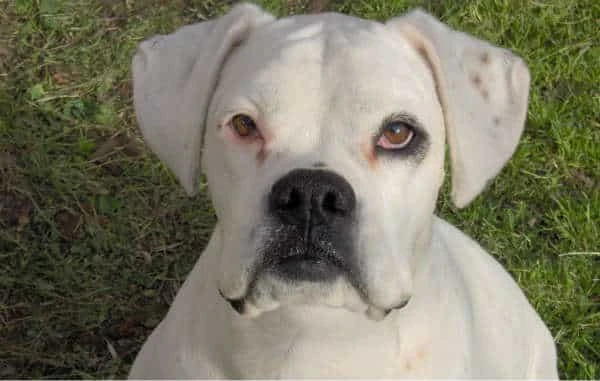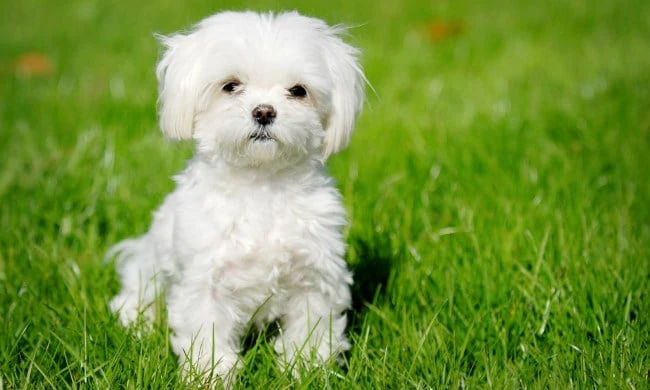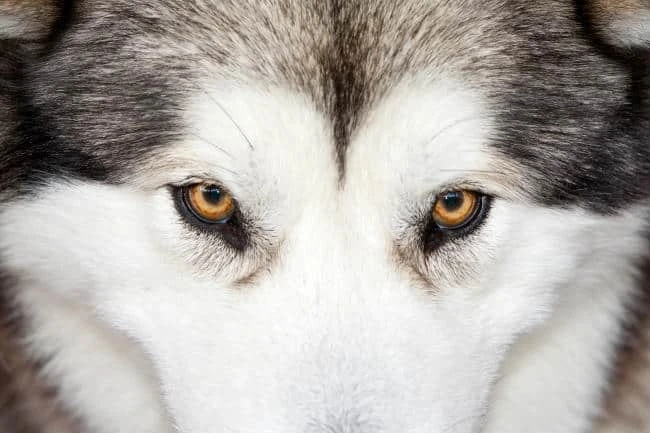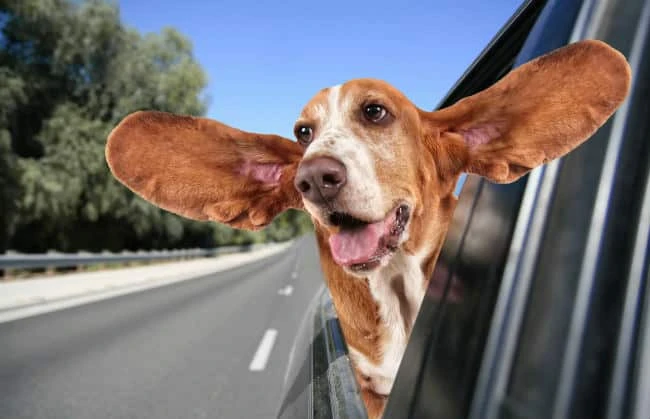Dog Owners Guide to Diarrhea in Dogs and Puppies

Diarrhea in dogs and puppies can be caused by a number of illnesses and diseases – some more serious than others and is defined as a frequent passage of liquid feces that is discharged from the bowels often caused by an underlying illness or disease.
Before we go into detail about the causes of diarrhea in dogs and puppies we need to know how much feces is passed by a healthy dog or puppy on a daily basis.
How often should my dog poop?
Although some dogs can poop as little as once or twice a day it is not uncommon for some dogs to poop as much as four times a day. Younger puppies can defecate as many as six times a day! Below is a guide to the average amount of feces passed by small, medium and larger breeds on a daily basis…
- Smaller Sized Breed – 70g of poop.
- Medium Sized Breed – 190g of poop.
- Large Sized Breed – 500g of poop
Just like in humans the color of a dog or puppy’s feces may vary depending on what they have eaten. For example if a dog or puppy is fed raw meat then the feces will be darker and if white meat is fed to the pooch (like chicken or turkey) then the feces will be paler.
It is also possible for a dogs feces to contain blood. Any sign of blood whether it is a few streaks or more can be a sign of a serious health problem like Parvovirus or Haemorrhagic gastroenteritis. Blood from the stomach, small intestine and from the back of the throat can also be passed out in a dog’s feces sometimes making the stools appear black.
It is very important that you speak to your vet if your dog’s stools are particularly smelly, covered on mucus and/or your dog or puppy is passing watery feces uncontrollably. Of course any sign of blood in the poop should be a cause of concern to dog owners.
What are the causes of diarrhea in dogs and puppies
Below are some of the causes of this condition…
1. Medications (including antibiotics, dewormers and some heart medications).
2. Stress
3. Allergies
4. Parasites (including worms)
5. Colitis
6. Haemorrhagic gastroenteritis
7. Ulcerative colitis
8. Parvovirus
9. Tuberculosis
10. Intestinal tumors
11. Poisoning
12. Distemper
13. Leukaemia
14. Pancreatic diseases
15. Feeding a puppy too much can lead to diarrhea
16. Sugar and honey
17. Onions
18. Raw eggs
19. Raisins, carrots and sultanas
20. Broad beans
21. Stale and decaying food can cause a bad stomach and diarrhea
22. Nuts
23. Human food and table scraps
24. Feeding a dog or puppy too much liver can also cause diarrhea.
25. Too much milk can cause the condition
26. Insufficient amounts of fibre can cause both diarrhea and constipation.
27. During and after whelping if the mother eats too much after birth can not surprisingly lead to diarrhea.
28. Sudden changes in the diet can cause the illness.
29. Vitamin B deficiency can also lead to diarrhea in dogs and puppies.
Bacteria can lead to diarrhea in dogs and puppies
Colibacillosis (E.coli) This cause of the condition can be caught through infected food, fecal matter and even through infected drinking water. E.coli is a very serious condition that can cause serious diarrhea, dehydration and even death.
Campylobacteriosis This is another cause of infectious diarrhea in dogs and puppies. The infectious bacteria is sometimes found in raw poultry, beef and in contaminated water and food. The bacteria has an incubation period of seven days with the symptoms including watery diarrhea, vomiting and signs of blood and mucus in the feces. This is a serious infection which may involve a dog having to go on intravenous fluids. Antibiotics including Erythromycin and Ciprofloxacin may need to be prescribed.
Salmonella This nasty bacteria is pretty well known but there are actually many strains of Salmonella that can cause severe vomiting and diarrhea. The Salmonella bacteria can survive for many years in the right environment and is normally passed to dogs and puppies through contaminated food. If a dog or puppy comes into contact with an area that has been contaminated with the bacteria this can cause the Salmonella infection to be passed on. Signs of the infection can include bad smelling stools, fever, diarrhea, vomiting and in some cases there might be blood in the feces.
How to treat diarrhea in dogs & puppies
The most common cause of this condition is through a bad diet and intestinal parasites. Diarrhea is actually the passage of very loose sometime watery stools (not formed) where there is an increased amount of movements during the day.
It normally takes about eight hours for food to pass through the small intestines where the majority of the food and water is absorbed. During the last part of the digestive process a solid and well formed stool is excreted – a healthy normal stool should not contain blood, mucus or undigested food.
Most dogs are likely to scavenge and eat garbage, dead mice or decayed food which will of course lead to a stomach upset and diarrhea. Some dogs just seem to have problems digesting certain food including beef, pork, horse meat, wheat, soy, fats, salts, spices and some corn (you can look at our list above for more foods that can cause the problem). There are also a variety of worms that can cause the problem including Roundworms, Whipworms, Hookworms and Threadworms (among others).
Diarrhea in dogs can be Chronic or Acute. Chronic diarrhea will need you to speak to your vet where he or she may need to take stool samples to test for parasites (like Roundworms etc) and bacteria like Salmonella. In some cases the vet may need to perform a Colonoscopy where the colon is closely examined – this is quite a successful diagnostic test for large bowel diarrhea. The vet can also examine liquid feces for cytology and culture. In some cases a biopsy maybe taken directly from the bowel wall.
If small bowel diarrhea is suspected then the vet may need to perform a Gastroscopy where a biopsy can be taken from the Duodenum and also samples taken from small bowel secretions. Finally to help locate the cause of the diarrhea ultrasound maybe performed.
Other causes of Chronic diarrhea in dogs can include Pancreatitis, food allergies, cancer, liver problems (including liver disease), thyroid problems, IBS, Addisons disease and Colitis.
Acute diarrhea in dogs is sometimes (but not always) possible to treat at home (under veterinary guidance) and is often considered less serious. The most common causes of this type are mainly in relation to a change in diet – the difference between the two being the length of time the diarrhea lasts and its intensity. Other causes of the Acute variety can include poison, bacteria, viral infections, problems with medications, stress, problem food and bacteria.
Additional ways of treating diarrhea in dogs
Of course you should always take your dog or puppy to the vets if…
1. The diarrhea is on-going and is been happening for 24 hours or more.
2. There is any blood in the feces.
3. Your dog or puppy is vomiting alongside the diarrhea.
4. Your pooch is looking increasingly unwell i.e. weak and is experiencing a high fever and temperature.
5. Your puppy is very young or the dog is older as both are very susceptible to dehydration.
After you have contacted the vet (only Acute diarrhea can be treated at home) and the first step that the vet will normally take is to rest the dog or puppy’s GI tract (Gastrointestinal tract) by withholding food for up to twenty four hours. During this period you should encourage your pooch to drink as much fluid as he or she wants.
If the diarrhea is continuing and is persistent in nature then the vet might recommend supplements including electrolyte solutions designed for dogs such as Pedialyte – these supplements are added to the water. There are other electrolyte solutions designed for dogs experiencing a bad case of diarrhea including K9 Thirst Quencher. A vet may also prescribe drugs to slow intestinal motility including Pepto-Bismol and Kaopectate.
If the Acute diarrhea responds well to intestinal rest (i.e. food has been withheld for twenty four hours) then a diet that is low in fat and is easy to digest is recommended – some of the best ingredients that should be included in a post diarrhea diet could include…
1. Cooked white rice.
2. Cooked oatmeal.
3. Cooked macaroni.
4. Cottage cheese.
5. Boiled chicken (skin removed).
6. Soft boiled eggs.
You should keep your dog on this diet for a couple of days and then gradually switch the diet back to your dog’s normal food.
Dog Health Problems Online > Diarrhea in Dogs




